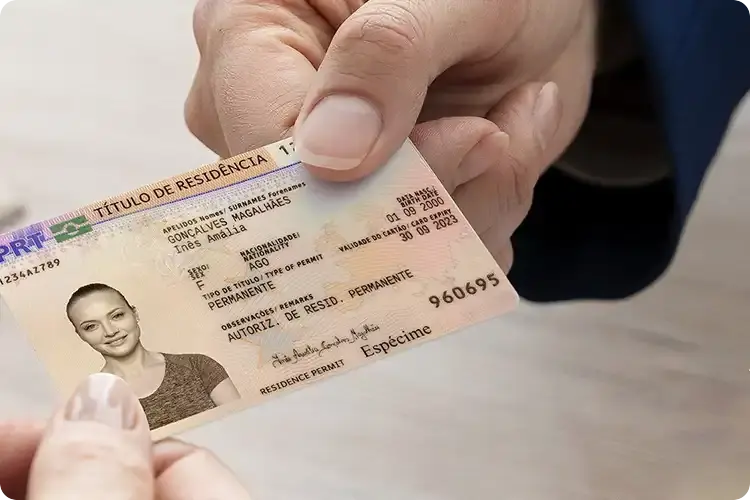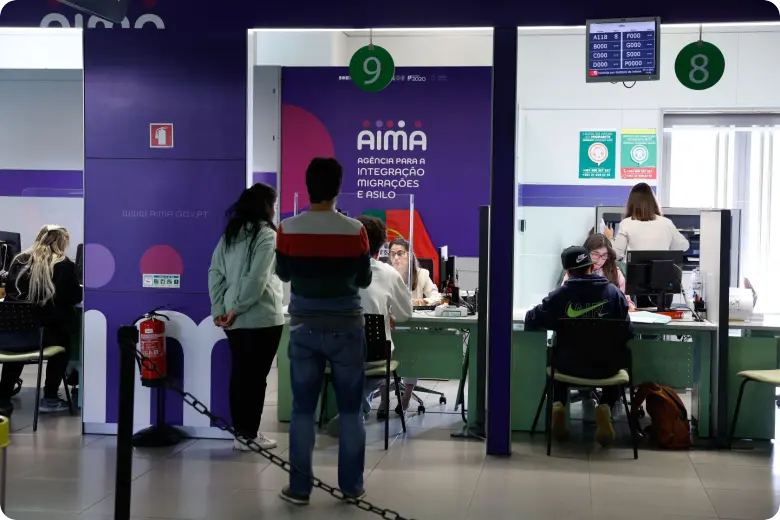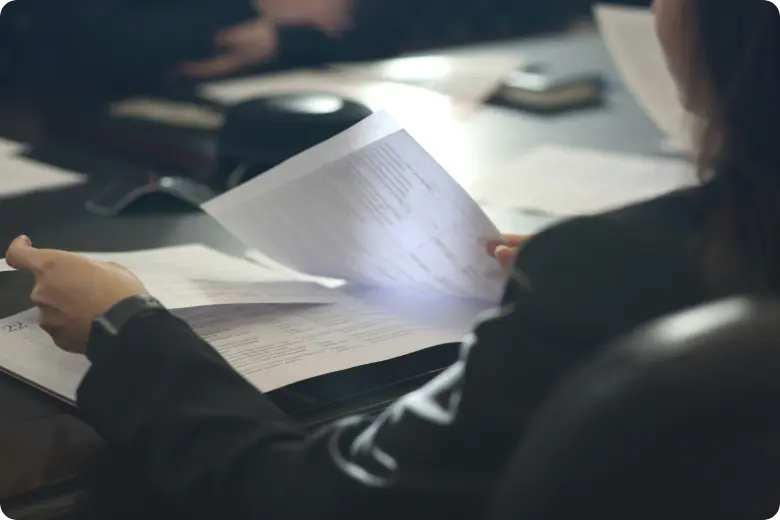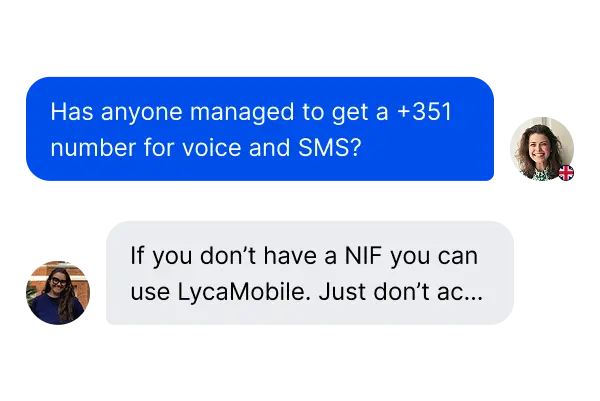Was wird benötigt, um eine dauerhafte Aufenthaltsgenehmigung in Portugal zu erhalten?
Die Sicherung Ihrer Dauerhaften Aufenthaltsgenehmigung (ARP) hängt weniger von Glück ab und mehr von gründlicher Vorbereitung. Während die fünfjährige Aufenthaltsregel der Zugang ist, verlangt AIMA (Agência para a Integração, Migrações e Asilo), dass Sie nachweisen, dass Sie ein stabiler, integrierter Teil der Gesellschaft sind.
Lasst uns jede einzelne Anforderung und jedes Dokument aufschlüsseln und dabei keinen Stein auf dem anderen lassen.
!: Denken Sie immer daran, dass die dauerhafte Aufenthaltsgenehmigung als Vorbereitung für Ihre Staatsbürgerschaft dienen kann. Wenn Sie dies jetzt abschließen, wird der Prozess einfacher und reibungsloser, da die meisten Anforderungen bereits erfüllt sind.
Was sind die Anforderungen für die portugiesische dauerhafte Aufenthaltsgenehmigung?
Die Erfüllung der fünfjährigen Mindestanforderung ist nur der erste Kontrollpunkt. Um Ihre Bewerbung genehmigt zu bekommen, müssen Sie kumulativ diese Bedingungen erfüllen, wie im Artikel 80 des Gesetzes n.º 23/2007 festgelegt:
1. Inhaber einer vorübergehenden Aufenthaltsgenehmigung seit mindestens 5 Jahren: Dies ist die nicht verhandelbare Grundlage. Die fünf Jahre werden ab dem Ausstellungsdatum Ihres allerersten título de residência gezählt. Es muss sich um einen kontinuierlichen legalen Aufenthalt handeln.
2. Keine schweren strafrechtlichen Verurteilungen: Sie dürfen nicht wegen eines Verbrechens (oder mehrerer Verbrechen) verurteilt worden sein, die zu einer Freiheitsstrafe von mehr als einem Jahr führten, auch wenn die Strafe ausgesetzt wurde. AIMA wird dies überprüfen, indem sie Ihr portugiesisches Strafregister einsehen.
3. Nachweis über ausreichende Mittel zum Lebensunterhalt: Dies ist eine kritische und oft missverstandene Anforderung. Sie müssen dem portugiesischen Staat nachweisen, dass Sie sich selbst (und etwaige Angehörige) ohne soziale Unterstützung unterhalten können.
- Was bedeutet „ausreichend“? Während es keine magische Zahl gibt, ist der Maßstab im Allgemeinen an den nationalen Mindestlohn, bekannt als IAS (Indexante dos Apoios Sociais), gebunden. Sie sollten versuchen, ein konsistentes monatliches Einkommen nachzuweisen, das mindestens diesem Betrag entspricht.
!: Eine einzelne, große Einzahlung auf Ihr Bankkonto kurz vor Ihrem Termin sieht verdächtig aus. AIMA möchte Stabilität sehen. Der beste Nachweis ist ein konsistentes, wiederkehrendes Einkommen der letzten 6-12 Monate (z. B. Gehaltszahlungen, regelmäßige Kundenrechnungen, wenn Sie selbstständig sind) und Ihre letzte jährliche Steuererklärung (IRS).
4. Nachweis über Unterkunft: Sie müssen eine stabile Wohnsituation in Portugal haben.
!: Ein einfacher Mietvertrag ist gut, aber AIMA hat einen offiziell bei Finanças registrierten Vertrag verlangt. Wenn Sie eine eigene Immobilie besitzen, benötigen Sie die Eigentumsurkunde (Certidão de Registo Predial) oder den Zugangscode, um sie online einzusehen. Wenn Sie bei Familienangehörigen oder einem Partner wohnen, der die Immobilie besitzt/mietet, benötigen Sie eine Erklärung von ihnen, die oft am besten mit einem Atestado de Residência von Ihrem örtlichen Gemeinderat (Junta de Freguesia) formalisiert wird.
5. Nachweis über grundlegende Kenntnisse der portugiesischen Sprache: Diese Anforderung ist für die Integration unerlässlich, gilt jedoch nicht für Staatsangehörige von CPLP-Ländern (Comunidade dos Países de Língua Portuguesa), einschließlich Brasilianern.
Für alle anderen Nationalitäten (Amerikaner, Briten, Südafrikaner usw.) müssen Sie den Nachweis über mindestens ein A2-Niveau gemäß dem CEFR-Rahmen erbringen.
. CIPLE-Zertifikat: Der häufigste Nachweis ist das Certificado Inicial de Português Língua Estrangeira (CIPLE). Dies ist eine offizielle Prüfung, die Sie bestehen müssen.
. PaPE-Zertifikat: Ein Zertifikat von einem staatlich anerkannten Portugiesischkurs (Português para a População Migrante - PaPE).
. Schulbescheinigung: Ein Zertifikat von einer akkreditierten Schule, das bestätigt, dass Sie das erforderliche Niveau erreicht haben.
Checkliste für Dokumente zur portugiesischen dauerhaften Aufenthaltsgenehmigung
Bereiten Sie diese Dokumente sorgfältig vor und organisieren Sie sie. Bringen Sie die Originale und mindestens eine Fotokopie von jedem zu Ihrem Termin mit.
| Dokument |
Details und Pro-Tipps |
| AIMA-Antragsformular |
Was es ist: Das offizielle, unterschriebene Antragsformular für die ARP.
Pro-Tipp: Laden Sie es von der AIMA-Website herunter. Sie können es im Voraus ausfüllen, aber warten Sie mit der Unterschrift bis zu Ihrem Termin vor dem AIMA-Mitarbeiter. |
| Zwei aktuelle Passfotos |
Was es ist: Standardfarbfotos im Passformat (3x4 cm) mit einem einfarbigen weißen Hintergrund.
Pro-Tipp: Während einige AIMA-Standorte jetzt vor Ort ein digitales Foto machen (wie Odivelas oder Aveiro), ist dies nicht überall garantiert. Bringen Sie immer physische Fotos als Backup mit. Riskieren Sie keine Verzögerung wegen etwas so Einfachem. |
| Gültiger Reisepass |
Was es ist: Ihr aktueller, gültiger Reisepass oder Reisedokument.
Pro-Tipp: Stellen Sie sicher, dass Ihr Reisepass am Tag Ihres Termins noch mindestens sechs Monate gültig ist. |
| Nachweis über 5 Jahre Aufenthalt |
Was es ist: Ihre vorherigen vorübergehenden Aufenthaltsgenehmigungen.
Pro-Tipp: AIMA hat dies in ihrem System, aber wenn Sie Ihre physischen Karten dabei haben, zeigt dies eine vollständige und organisierte Historie. |
| Nachweis über Lebensunterhalt |
Was es ist: Nachweis Ihrer finanziellen Stabilität.
Pro-Tipp: Bringen Sie nicht nur ein Dokument mit. Bringen Sie eine vollständige Akte mit: Ihre letzte jährliche IRS-Erklärung, die letzten 3-6 Monate Gehaltsabrechnungen (wenn angestellt) und aktuelle Kontoauszüge, die ein konsistentes Einkommen zeigen. Wenn Sie selbstständig sind, bringen Sie Ihre recibos verdes und vierteljährlichen USt-/Sozialversicherungs-Erklärungen mit. Bereiten Sie sich übermäßig vor. |
| Nachweis über Unterkunft |
Was es ist: Nachweis Ihrer Adresse und Wohnsituation.
Pro-Tipp: Der stärkste Nachweis ist ein Mietvertrag, der im Portal das Finanças registriert ist, oder Ihre Certidão de Registo Predial. Wenn Sie diese nicht haben, ist eine Erklärung des Eigentümers plus ein Atestado de Residência von der Junta de Freguesia Ihre nächstbeste Option. |
| Genehmigung zur Überprüfung des Strafregisters |
Was es ist: Ein Formular, das AIMA autorisiert, Ihr portugiesisches Strafregister zu überprüfen.
Pro-Tipp: Dies ist ein Standardformular, das sie Ihnen zur Unterschrift beim Termin bereitstellen werden. |
| Nachweis über Steuer- und Sozialversicherungsstatus |
Was es ist: Offizielle Erklärungen, dass Sie keine ausstehenden Schulden bei der Steuerbehörde oder der Sozialversicherung haben.
Pro-Tipp: Sie können diese online sofort und kostenlos erhalten. Gehen Sie auf die Websites Portal das Finanças und Segurança Social Direto und suchen Sie nach "Certidão de Não Dívida." Laden Sie die PDFs herunter und drucken Sie sie ein oder zwei Tage vor Ihrem Termin aus, damit sie aktuell sind. |
| Nachweis über grundlegende Portugiesischkenntnisse |
Was es ist: (Nur für Nicht-CPLP-Bürger) Ihr CIPLE-Zertifikat oder gleichwertiger Nachweis über A2-Niveau Kenntnisse.
Pro-Tipp: Warten Sie nicht bis zur letzten Minute, um dies zu erhalten. Die Einschreibung in einen Kurs oder die Terminierung der CIPLE-Prüfung kann Monate dauern. Planen Sie dies gut im Voraus Ihres fünfjährigen Jubiläums. |

































